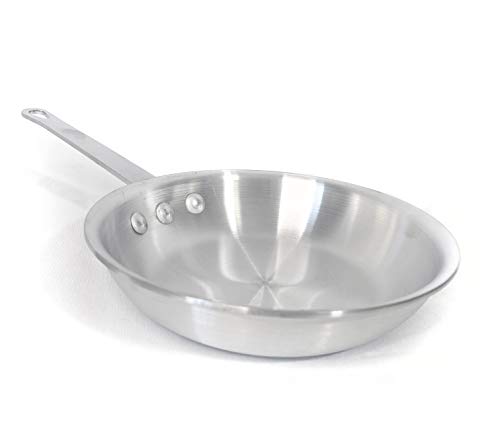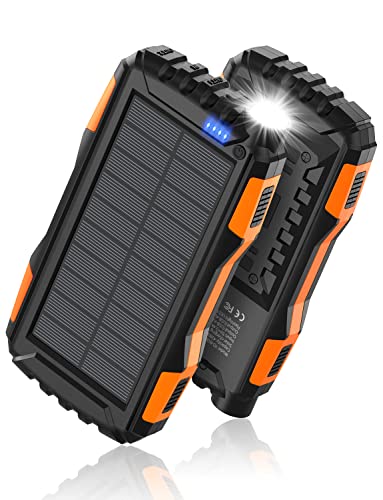
Hey there! Are you curious about the differences between recycled aluminum and virgin aluminum? Well, you’ve come to the right place! In this blog post, we’ll delve into the world of aluminum and explore the pros and cons of each option. We’ll also take a closer look at how these materials impact our environment. So, grab a cup of coffee and get ready to become an aluminum aficionado!
Discover the Eco-Friendly Favorites: Bestsellers in Recycled Aluminum Products!
What is recycled aluminum?
Aluminum is a versatile and widely used material in various industries, including construction, packaging, and transportation. But have you ever wondered what happens to all the aluminum products once they reach the end of their life cycle? That’s where recycled aluminum comes into play.
Definition and Process
Recycled aluminum refers to the aluminum that is recovered and processed from used products or scrap aluminum. Instead of ending up in landfills, aluminum can be recycled and transformed into new products, reducing the need for raw materials and minimizing environmental impact.
The process of recycling aluminum typically involves the following steps:
- Collection: Used aluminum products, such as cans, foil, and car parts, are collected from consumers, businesses, and recycling centers.
- Sorting: The collected aluminum is sorted to separate it from other materials, such as plastic or paper.
- Melting: The sorted aluminum is melted in a furnace to remove any impurities and achieve a consistent composition.
- Shaping: Once melted, the aluminum can be shaped into ingots, sheets, or other forms, depending on the intended application.
- Manufacturing: The recycled aluminum is then used to produce a wide range of products, from beverage cans to car parts and building materials.
Advantages of Using Recycled Aluminum Products
Using recycled aluminum products offers several benefits, both for the environment and for consumers. Let’s take a look at some of the advantages:
- Energy and Resource Conservation: Recycling aluminum requires significantly less energy and resources compared to producing aluminum from raw materials. In fact, recycling aluminum saves up to 95% of the energy needed for primary aluminum production.
- Reduced Greenhouse Gas Emissions: The production of recycled aluminum results in lower greenhouse gas emissions, including a reduction of up to 95% in CO2 emissions compared to primary aluminum production.
- Cost-effective: Recycling aluminum is often more cost-effective than mining and refining new aluminum. This cost savings can be passed on to consumers, making recycled aluminum products more affordable.
- Quality and Durability: Recycled aluminum exhibits the same quality and durability as virgin aluminum, making it suitable for a wide range of applications.
- Closed-loop Recycling: Aluminum is one of the few materials that can be recycled indefinitely without losing its properties. This closed-loop recycling process helps conserve resources and reduce waste.
What is virgin aluminum?
When it comes to aluminum, you may have come across the term “virgin aluminum” and wondered what it actually means. In this section, we will dive into the details of virgin aluminum, its manufacturing process, and how it compares to recycled aluminum.
Understanding Virgin Aluminum
Virgin aluminum refers to aluminum that is produced directly from bauxite ore without any prior use or recycling. It is essentially aluminum in its purest form, devoid of any impurities or alloys. This makes virgin aluminum highly sought after for various industries, including automotive, aerospace, construction, and packaging.
The Manufacturing Process of Virgin Aluminum
To understand the manufacturing process of virgin aluminum, we need to start from the extraction of bauxite ore. Here’s a step-by-step breakdown:
- Bauxite Mining: Bauxite, a reddish-brown rock containing aluminum oxide, is extracted from open-pit mines or underground mines.
- Refining Bauxite: The extracted bauxite is refined using the Bayer process, which involves crushing and grinding the ore into a fine powder. This powder is then mixed with sodium hydroxide to dissolve the aluminum oxide.
- Precipitation: The dissolved aluminum oxide is then precipitated out of the solution, further purified, and transformed into aluminum hydroxide.
- Calcination: The aluminum hydroxide is heated to high temperatures, resulting in the formation of alumina, which is then smelted to produce liquid aluminum.
- Casting: The molten aluminum is cast into various shapes, such as ingots, sheets, or extrusions, depending on the desired end product.
Pros and Cons of Using Virgin Aluminum
Pros of Virgin Aluminum
- High Purity: Virgin aluminum offers superior quality and purity compared to recycled aluminum.
- Strength and Durability: Due to its purity, virgin aluminum tends to be stronger and more durable, making it ideal for applications that require high strength-to-weight ratios.
- Consistency: Virgin aluminum allows for consistent properties, which is crucial for industries where precise specifications and tolerances are required.
- Versatility: Virgin aluminum’s versatility allows it to be used in a wide range of products, from aircraft components to beverage cans.
Cons of Virgin Aluminum
- Energy Intensive: The production of virgin aluminum requires significant amounts of energy, contributing to higher carbon emissions compared to recycled aluminum.
- Resource Consumption: Virgin aluminum relies on the extraction of bauxite, which is a finite resource. This extraction process can result in habitat destruction and loss of biodiversity.
A Comparison: Virgin Aluminum vs. Recycled Aluminum
To help you understand the differences between virgin aluminum and recycled aluminum, here’s a comparison:
| Virgin Aluminum | Recycled Aluminum |
|---|---|
| Produced from bauxite ore | Derived from scrap aluminum |
| High purity | May contain impurities or alloys |
| Energy-intensive production process | Requires less energy and reduces carbon emissions |
| Superior strength and durability | Slightly lower strength compared to virgin aluminum |
| Ideal for precise applications | Suitable for various applications |
| Relies on finite resources | Contributes to a circular economy and reduces waste |
Environmental impact
As the world becomes more aware of the need for sustainable practices, the choice between recycled aluminum and virgin aluminum has become increasingly relevant. In this blog post, we will explore the environmental impact of these two options, comparing factors such as energy consumption, greenhouse gas emissions, and overall environmental footprint. By understanding the benefits of recycled aluminum, we can make informed decisions that contribute to a greener future.
Energy Consumption
- Recycled Aluminum:
- Requires only 5% of the energy needed to produce virgin aluminum.
- Recycling one ton of aluminum saves approximately 14,000 kWh of energy.
- In comparison, producing one ton of virgin aluminum consumes around 220 million British thermal units (MMBtu) of energy.
- Virgin Aluminum:
- The extraction and production of virgin aluminum are energy-intensive processes.
- It takes a significant amount of electricity and fossil fuels to mine bauxite, the primary source of virgin aluminum.
- The refining and smelting of bauxite into aluminum also require large amounts of energy.
Greenhouse Gas Emissions
- Recycled Aluminum:
- Produces 95% less greenhouse gas emissions compared to virgin aluminum production.
- Recycling one ton of aluminum reduces carbon dioxide emissions by approximately 9 metric tons.
- The use of recycled aluminum in manufacturing can significantly contribute to reducing a company’s carbon footprint.
- Virgin Aluminum:
- The extraction and production of virgin aluminum contribute to greenhouse gas emissions.
- The mining process releases carbon dioxide as well as other harmful gases into the atmosphere.
- The energy-intensive refining and smelting processes further contribute to carbon emissions.
Environmental Footprint
- Recycled Aluminum:
- Reduces the need for mining, which helps preserve natural habitats and biodiversity.
- Decreases the demand for raw materials, such as bauxite, which requires deforestation and disrupts ecosystems.
- Recycling aluminum reduces landfill waste, as aluminum can be recycled indefinitely without losing its properties.
- Virgin Aluminum:
- The extraction of bauxite results in habitat destruction, soil erosion, and water pollution.
- Mining activities can harm local communities and wildlife.
- The process of refining bauxite into aluminum generates hazardous waste products that require proper disposal.
Factors to consider
When it comes to choosing between recycled aluminum and virgin aluminum, there are several factors that you should take into consideration. In this blog section, we will delve into the key aspects to help you make an informed decision. So, let’s dive in!
Cost: A Wallet-Friendly Option
- Recycled Aluminum:
- Generally, recycled aluminum is more cost-effective compared to virgin aluminum. This is because the production process for recycled aluminum requires less energy and resources, resulting in lower production costs.
- By opting for recycled aluminum, you not only save money but also contribute to a more sustainable future.
- Virgin Aluminum:
- Virgin aluminum tends to be more expensive due to the higher costs associated with mining, refining, and processing the raw materials.
- However, it is important to note that the price difference can vary depending on market conditions and specific products or brands.
Availability: A Sustainable Choice
- Recycled Aluminum:
- With the increasing emphasis on sustainability, the availability of recycled aluminum has significantly improved. Many manufacturers now prioritize using recycled aluminum in their products, reducing the strain on natural resources.
- By choosing products made with recycled aluminum, you support the recycling industry and help reduce the demand for virgin aluminum.
- Virgin Aluminum:
- While virgin aluminum is widely available, its production involves mining bauxite ore, which can have detrimental environmental impacts.
- Companies that solely rely on virgin aluminum may contribute to deforestation, habitat destruction, and increased carbon emissions.
Durability: Strength and Longevity
- Recycled Aluminum:
- Contrary to popular belief, recycled aluminum can be just as durable as virgin aluminum. The recycling process does not compromise the structural integrity of the metal.
- Many reputable brands have successfully incorporated recycled aluminum into their products, ensuring they meet the same standards of strength and longevity.
- Virgin Aluminum:
- Virgin aluminum is known for its strength and durability. It is often used in industries where high tensile strength is required, such as aerospace and automotive manufacturing.
Environmental Impact: A Greener Choice
- Recycled Aluminum:
- Opting for recycled aluminum significantly reduces the environmental footprint. It requires only a fraction of the energy and resources needed to produce virgin aluminum.
- By using recycled aluminum, you help conserve natural resources, reduce landfill waste, and minimize greenhouse gas emissions.
- Virgin Aluminum:
- The production of virgin aluminum involves the extraction of bauxite ore, which contributes to deforestation, habitat destruction, and soil erosion.
- Additionally, the refining and smelting processes emit greenhouse gases, such as carbon dioxide and perfluorocarbons, which contribute to climate change.
Making the sustainable choice for a better future
In conclusion, when weighing the pros and cons of recycled aluminum versus virgin aluminum, it ultimately comes down to your personal preferences and priorities. Whether you prioritize sustainability, cost-effectiveness, or availability, both options have their own merits. By considering factors such as environmental impact, cost, and availability, you can make an informed decision that aligns with your specific needs. So, the choice is yours – opt for recycled aluminum or virgin aluminum based on what matters most to you.
Frequently Asked Questions about Recycled Aluminum Products
Can you provide some examples of common products that are made from recycled aluminum?
Of course! There are many common products that are made from recycled aluminum. Some examples include beverage cans, food containers, aluminum foil, bicycle frames, car parts, window frames, and even some electronics. Recycling aluminum helps to conserve natural resources and reduce energy consumption, so it’s great to see it being used in all sorts of everyday items.
Are there any differences in quality between products made from recycled aluminum and those made from virgin aluminum?
Yes, there can be some differences in quality between products made from recycled aluminum versus those made from virgin aluminum. Recycled aluminum is obtained from old aluminum products and scrap, which is then melted down and processed to create new products. On the other hand, virgin aluminum is extracted directly from the earth through mining and undergoes a different refining process.
The primary difference lies in the purity level of the aluminum. Virgin aluminum is usually purer because it goes through a more extensive refining process, removing impurities and other elements. Recycled aluminum may contain small amounts of impurities or alloying elements that were present in the original scrap material.
However, the quality difference is often negligible for many applications. Recycled aluminum is widely used and meets industry standards for various products, including beverage cans, car parts, and construction materials. In fact, recycling aluminum saves energy and reduces the need for mining, making it an environmentally friendly choice.
It’s important to note that the quality of the final product also depends on other factors, such as the manufacturing process and the specific requirements of the product. So, while there may be some differences in purity, it doesn’t necessarily mean that one type of aluminum is inherently better than the other in all cases.
What is the difference between recycled aluminum and virgin aluminum?
Sure! Recycled aluminum is made from aluminum scrap that has been recovered and processed to be used again. It goes through a recycling process which involves melting down the scrap and removing impurities. On the other hand, virgin aluminum is produced from raw materials such as bauxite ore. It requires mining, refining, and smelting processes to obtain the aluminum. The main difference is that recycled aluminum reduces the need for mining and energy-intensive processes, making it a more sustainable and environmentally friendly option.














